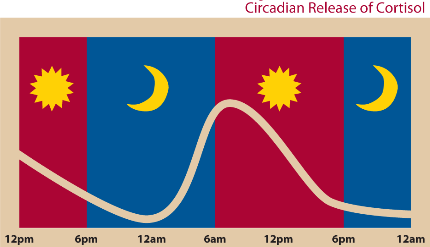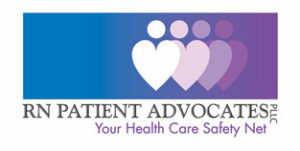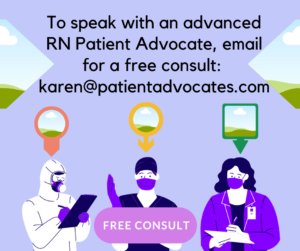Always tired and wondering why? Need lots of caffeine to keep going? Lots of stress in your life? What’s going on here?
 You might be experiencing a condition known as Adrenal Fatigue or non-Addison’s hypoadrenia and it is diagnosable and treatable.
You might be experiencing a condition known as Adrenal Fatigue or non-Addison’s hypoadrenia and it is diagnosable and treatable.
The previous post explaining your Adrenal Gland and its importance mentioned a hormone it produces called cortisol.
Cortisol (which is produced from cholesterol) gives us energy in the morning, helps to keep us going during exercise, daily work and stress. It is the “fight or flight” hormone, or what gives us the “shivers” in near accidents in traffic.
When you experience periods of stress – either physically or mentally induced – your adrenal glands respond by producing high levels of cortisol to help your body meet the challenge. However, when that stress – or the challenges – are prolonged, the adrenal glands become “fatigued” and cannot produce normal amounts of cortisol at the usual times of day.
What does this look like? You may look and act relatively normal with adrenal fatigue and may not have any obvious signs of physical illness, yet you live with a general sense of unwellness, tiredness or “gray” feelings.
Common symptoms include:
• Cravings for sugar
• Cravings for salt on food when you eat
• Feel dehydrated and thirsty and require plenty of water
• Difficulty falling asleep at night, sleep lightly or wake early or often
• Difficulty relaxing, nervous, anxious or hyperactive
• Often spacey, or foggy thinking, even memory loss
• Low libido
• Weight gain, especially in abdomen and waist area
• Losing muscle tone
• High blood sugar
 What to do? First step is to get diagnosed. Before you see your doctor, you might want to take this Adrenal Fatigue Questionnaire to see if this might be happening to you. Clinically, this is diagnosed by a Salivary Cortisol Assay which measures your cortisol output at 4 times during the day (cortisol typically waxes and wanes during specific times of the day). Blood tests for this show only extreme conditions and will not reflect this pervasive fatigue. Some physicians do this test, others do not.
What to do? First step is to get diagnosed. Before you see your doctor, you might want to take this Adrenal Fatigue Questionnaire to see if this might be happening to you. Clinically, this is diagnosed by a Salivary Cortisol Assay which measures your cortisol output at 4 times during the day (cortisol typically waxes and wanes during specific times of the day). Blood tests for this show only extreme conditions and will not reflect this pervasive fatigue. Some physicians do this test, others do not.
Work with a physician who is knowledgeable in treating this condition and who can direct you to the proper supplements – such as the B vitamins, Vitamin C, the proper form of calcium among others. You can call your RN Patient Advocate to help find a physician to help with this.
Can you learn to rest and relax again? Can you increase your exercise (this can raise cortisol levels)? You might eat frequent small meals and avoid caffeine as much as possible.
Reduce your stressors in your life as much as possible.
Adrenal Fatigue is reversible. It takes time but you can feel energy again.
 You might be experiencing a condition known as Adrenal Fatigue or non-Addison’s hypoadrenia and it is diagnosable and treatable.
You might be experiencing a condition known as Adrenal Fatigue or non-Addison’s hypoadrenia and it is diagnosable and treatable.
The previous post explaining your Adrenal Gland and its importance mentioned a hormone it produces called cortisol.
Cortisol (which is produced from cholesterol) gives us energy in the morning, helps to keep us going during exercise, daily work and stress. It is the “fight or flight” hormone, or what gives us the “shivers” in near accidents in traffic.
When you experience periods of stress – either physically or mentally induced – your adrenal glands respond by producing high levels of cortisol to help your body meet the challenge. However, when that stress – or the challenges – are prolonged, the adrenal glands become “fatigued” and cannot produce normal amounts of cortisol at the usual times of day.
What does this look like? You may look and act relatively normal with adrenal fatigue and may not have any obvious signs of physical illness, yet you live with a general sense of unwellness, tiredness or “gray” feelings.
Common symptoms include:
• Cravings for sugar
• Cravings for salt on food when you eat
• Feel dehydrated and thirsty and require plenty of water
• Difficulty falling asleep at night, sleep lightly or wake early or often
• Difficulty relaxing, nervous, anxious or hyperactive
• Often spacey, or foggy thinking, even memory loss
• Low libido
• Weight gain, especially in abdomen and waist area
• Losing muscle tone
• High blood sugar
 What to do? First step is to get diagnosed. Before you see your doctor, you might want to take this Adrenal Fatigue Questionnaire to see if this might be happening to you. Clinically, this is diagnosed by a Salivary Cortisol Assay which measures your cortisol output at 4 times during the day (cortisol typically waxes and wanes during specific times of the day). Blood tests for this show only extreme conditions and will not reflect this pervasive fatigue. Some physicians do this test, others do not.
What to do? First step is to get diagnosed. Before you see your doctor, you might want to take this Adrenal Fatigue Questionnaire to see if this might be happening to you. Clinically, this is diagnosed by a Salivary Cortisol Assay which measures your cortisol output at 4 times during the day (cortisol typically waxes and wanes during specific times of the day). Blood tests for this show only extreme conditions and will not reflect this pervasive fatigue. Some physicians do this test, others do not.
Work with a physician who is knowledgeable in treating this condition and who can direct you to the proper supplements – such as the B vitamins, Vitamin C, the proper form of calcium among others. You can call your RN Patient Advocate to help find a physician to help with this.
Can you learn to rest and relax again? Can you increase your exercise (this can raise cortisol levels)? You might eat frequent small meals and avoid caffeine as much as possible.
Reduce your stressors in your life as much as possible.
Adrenal Fatigue is reversible. It takes time but you can feel energy again.





Recent Comments